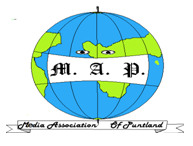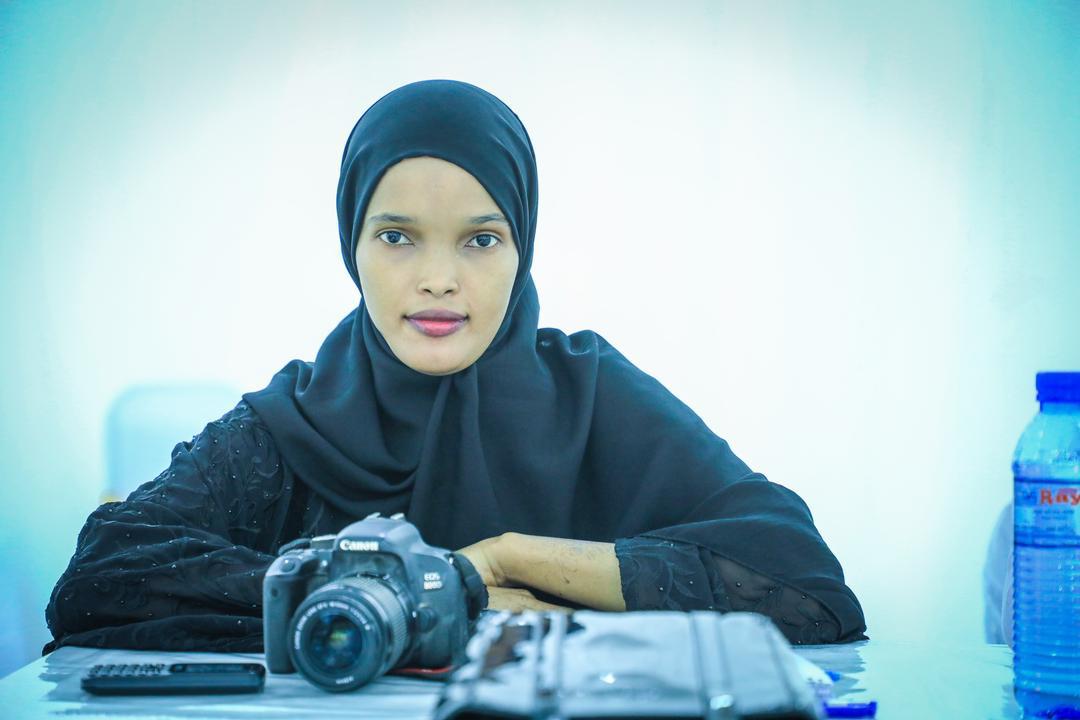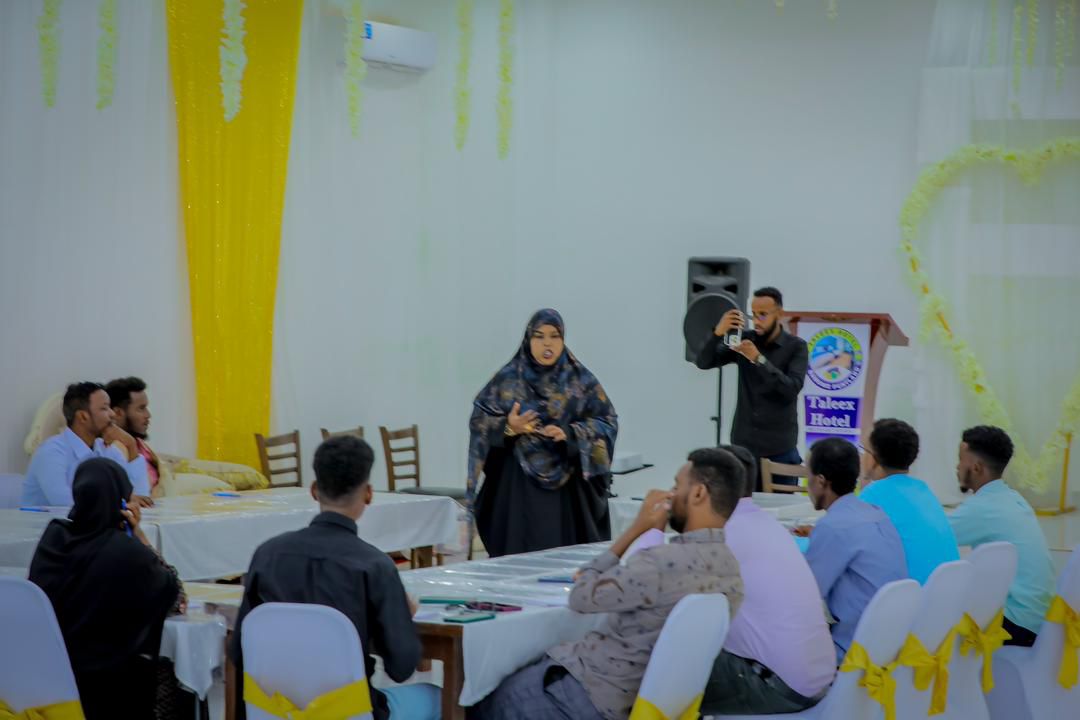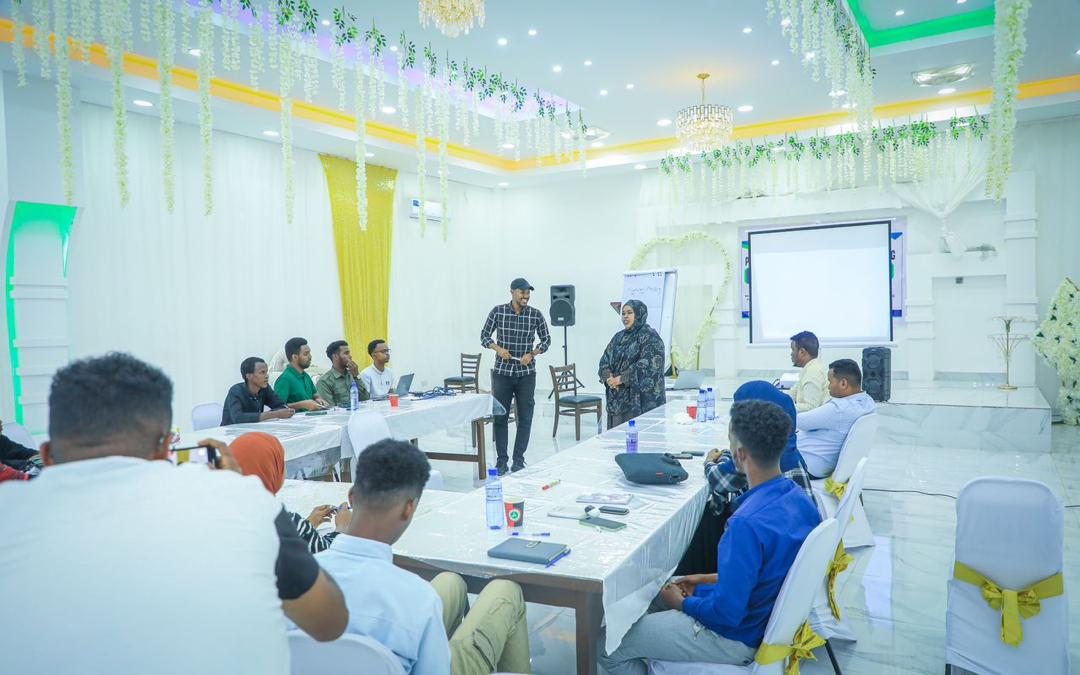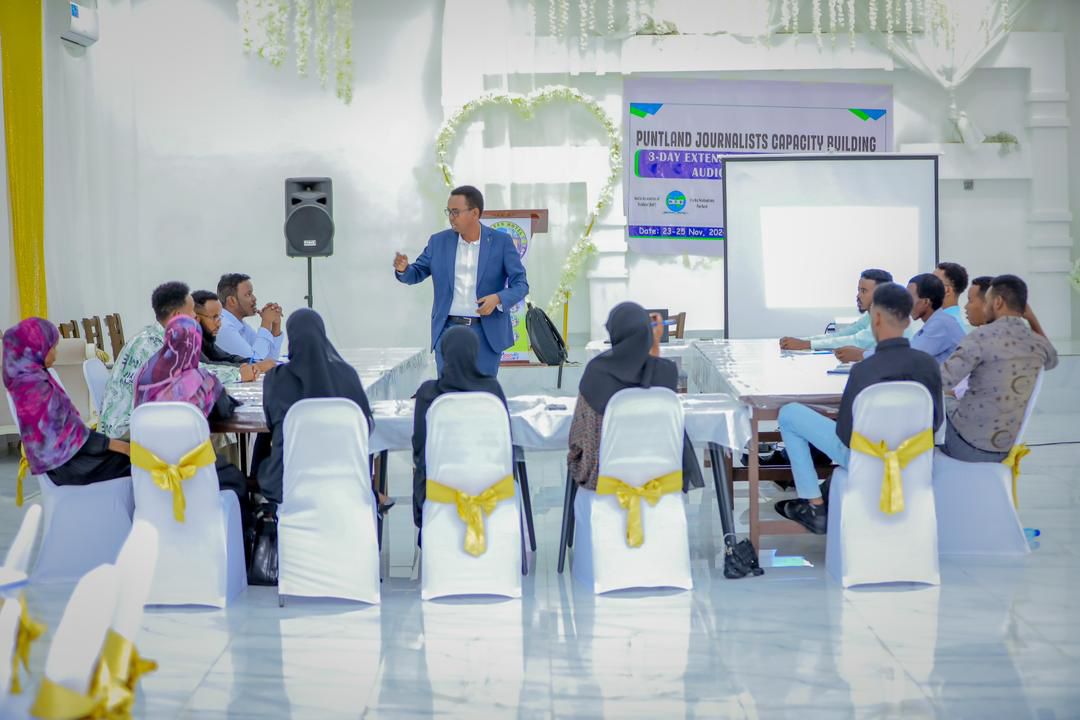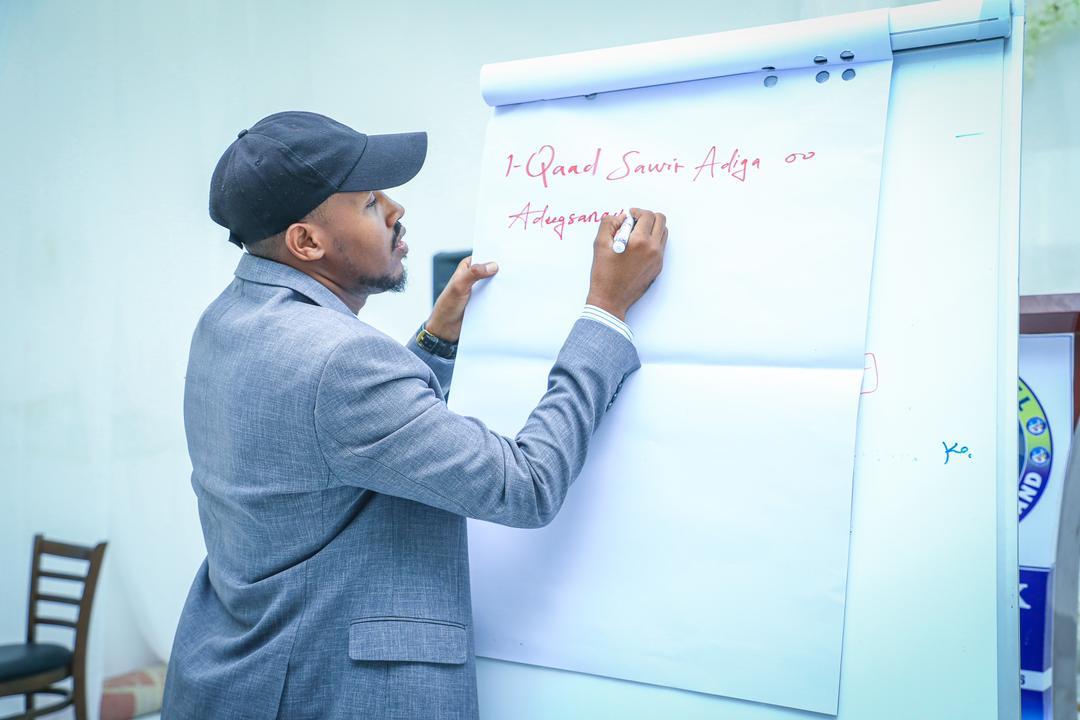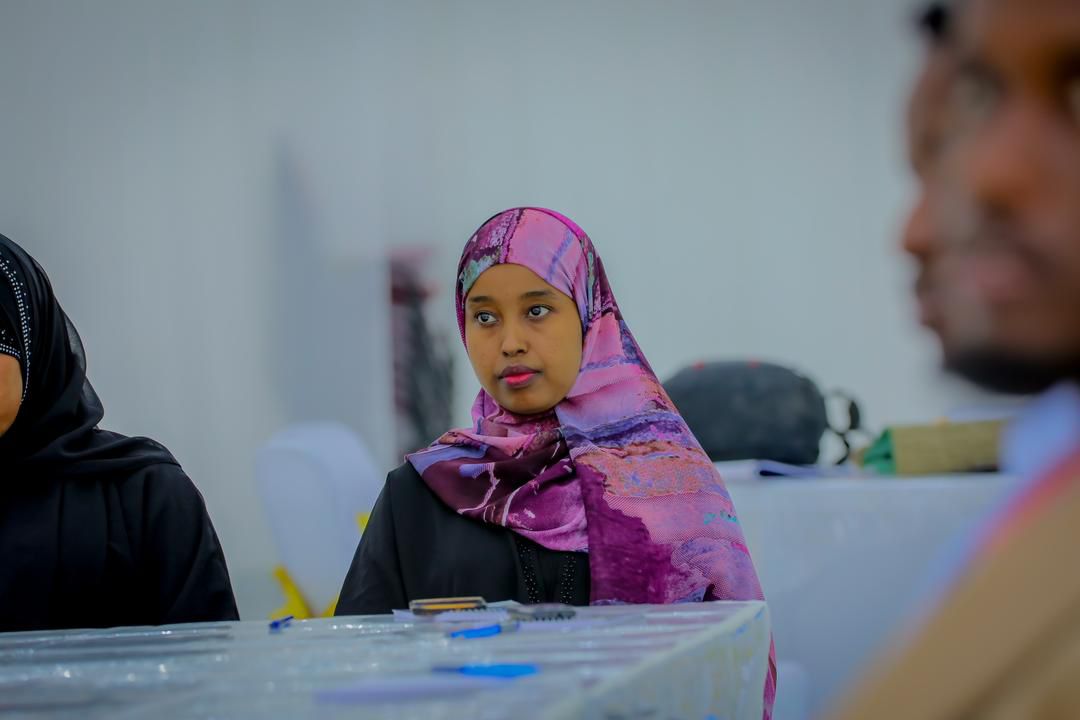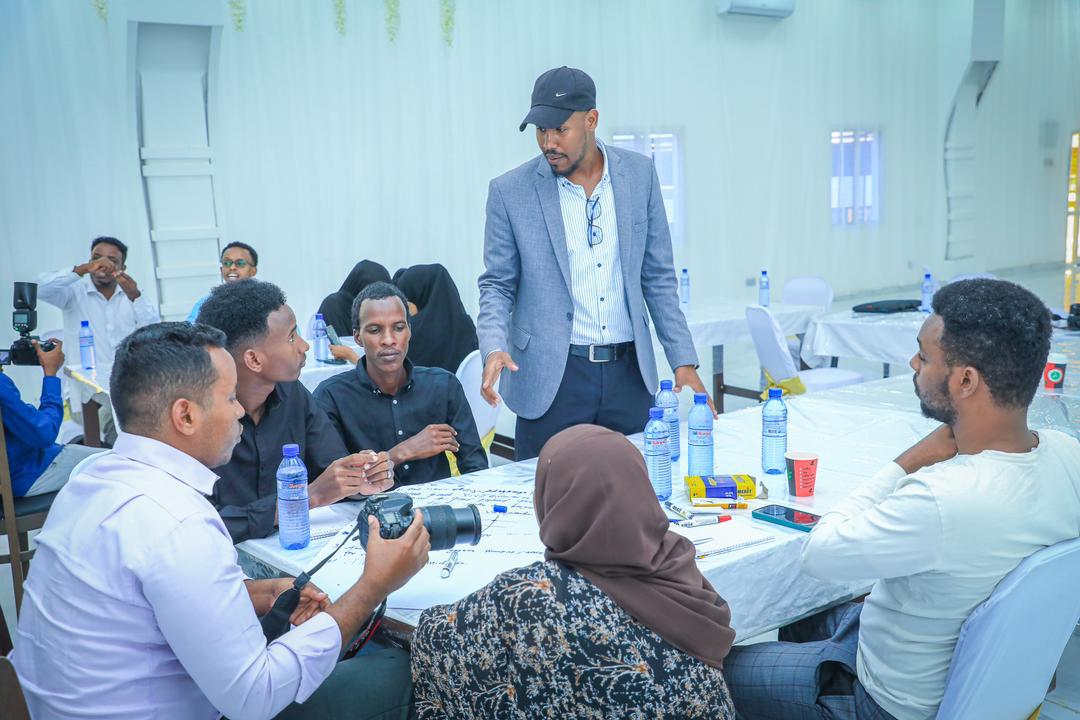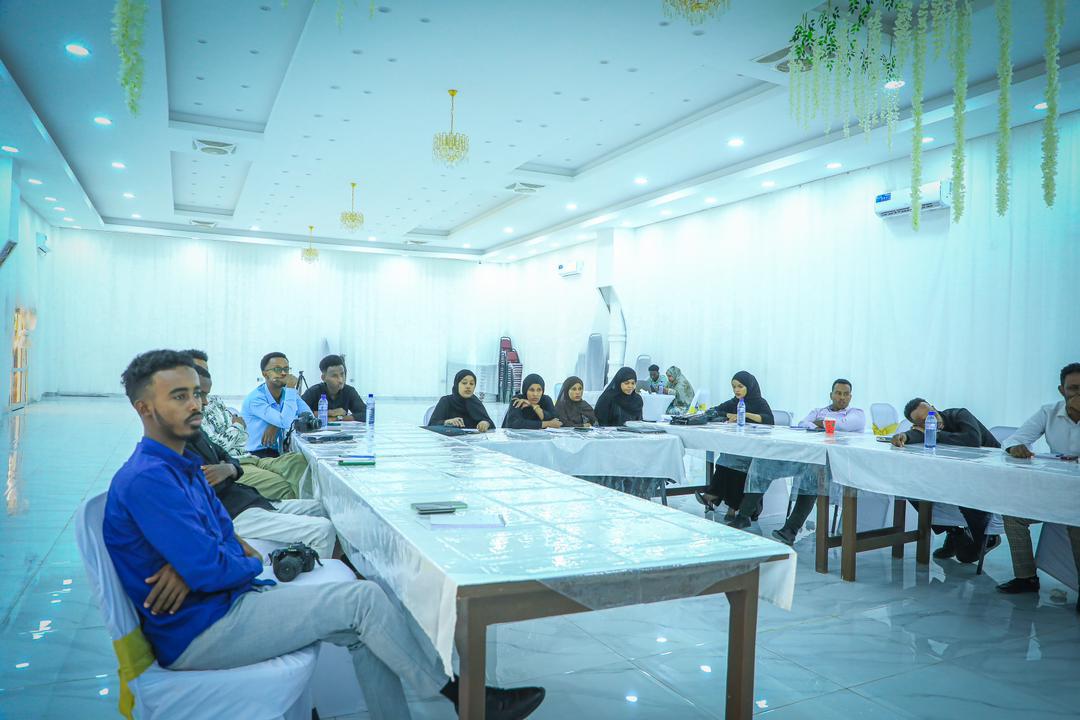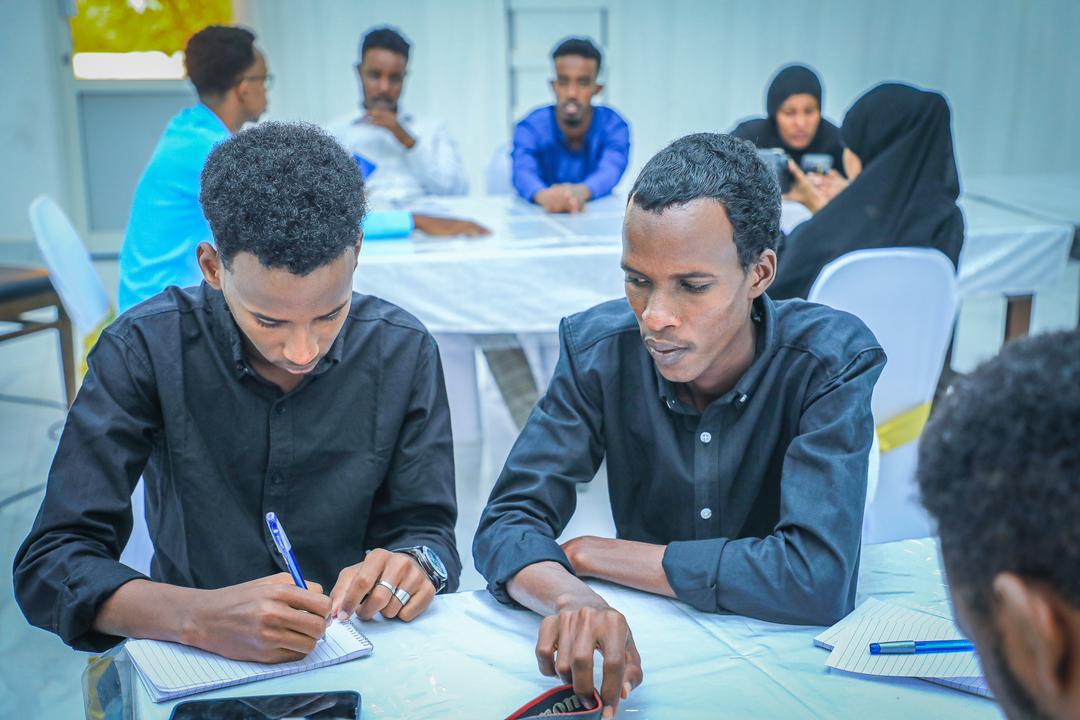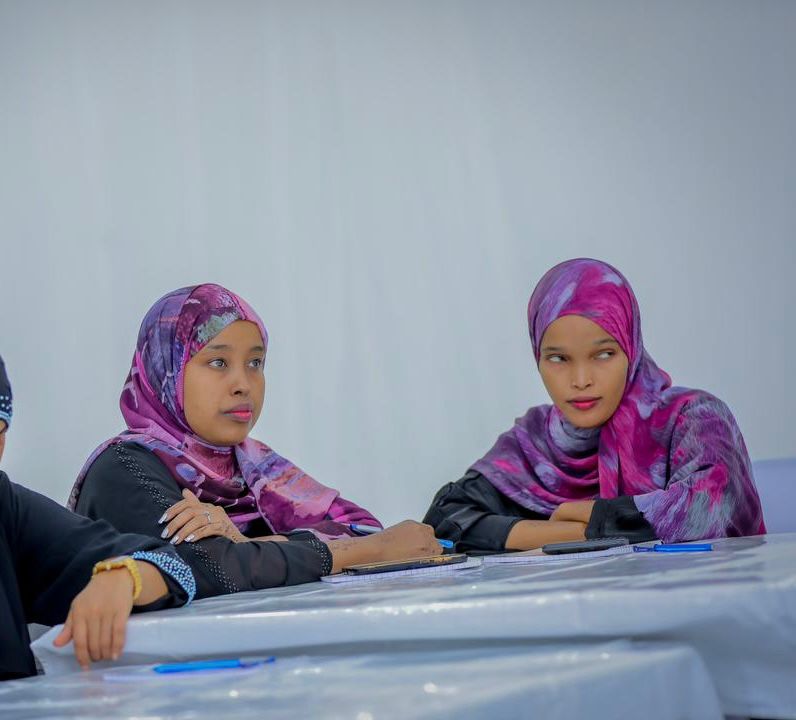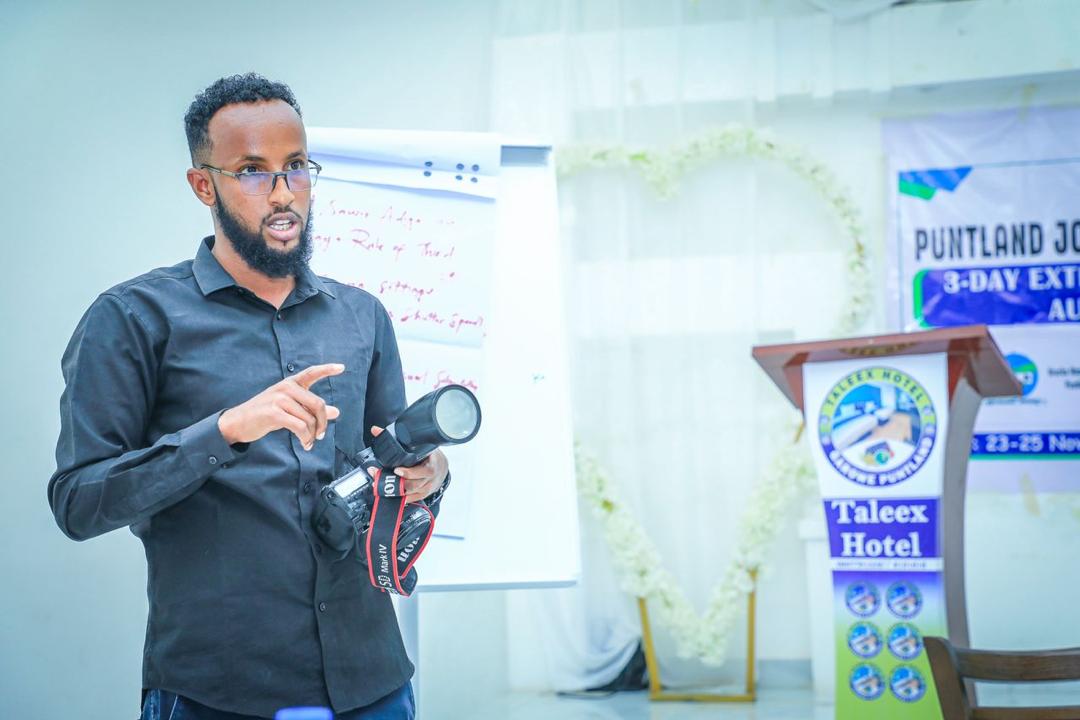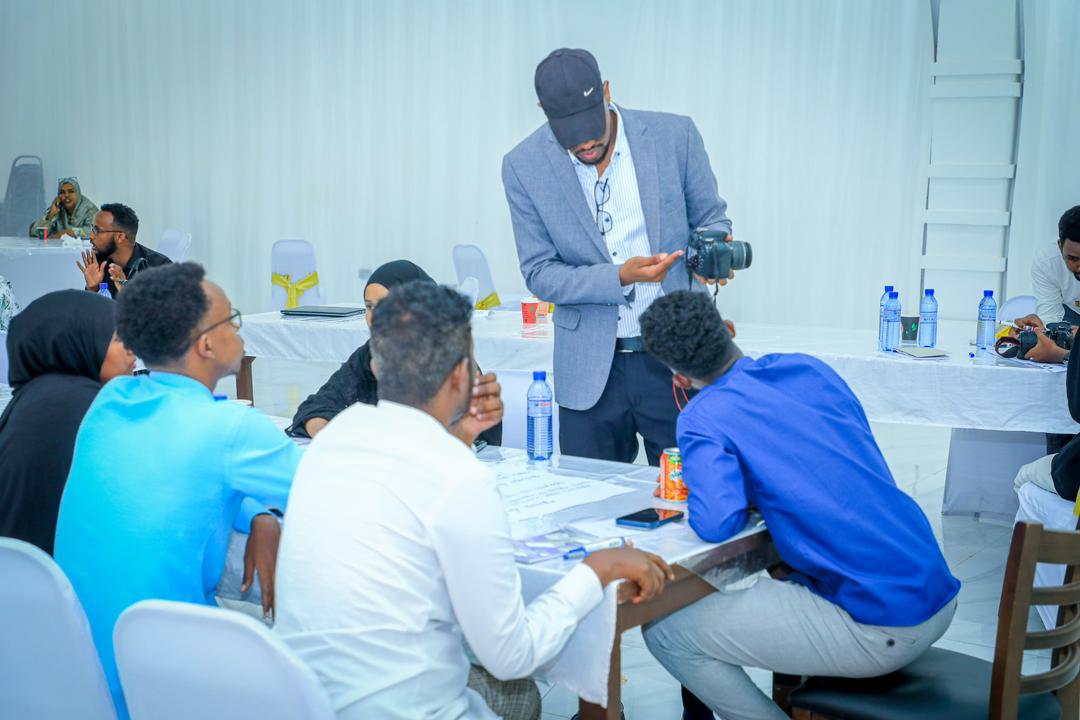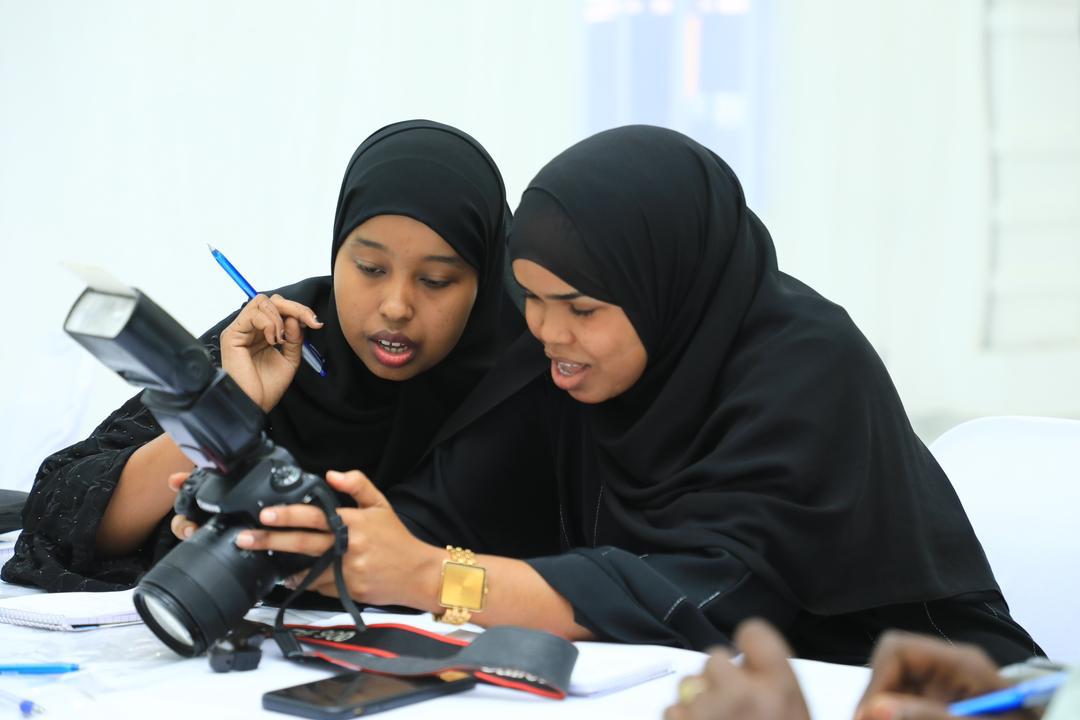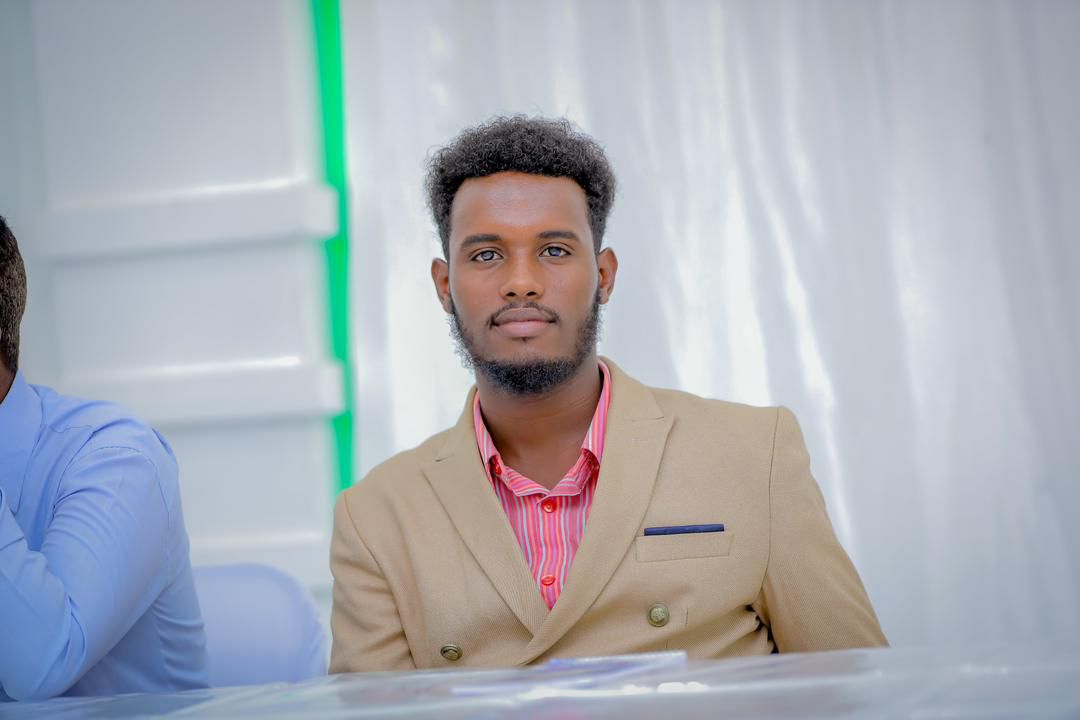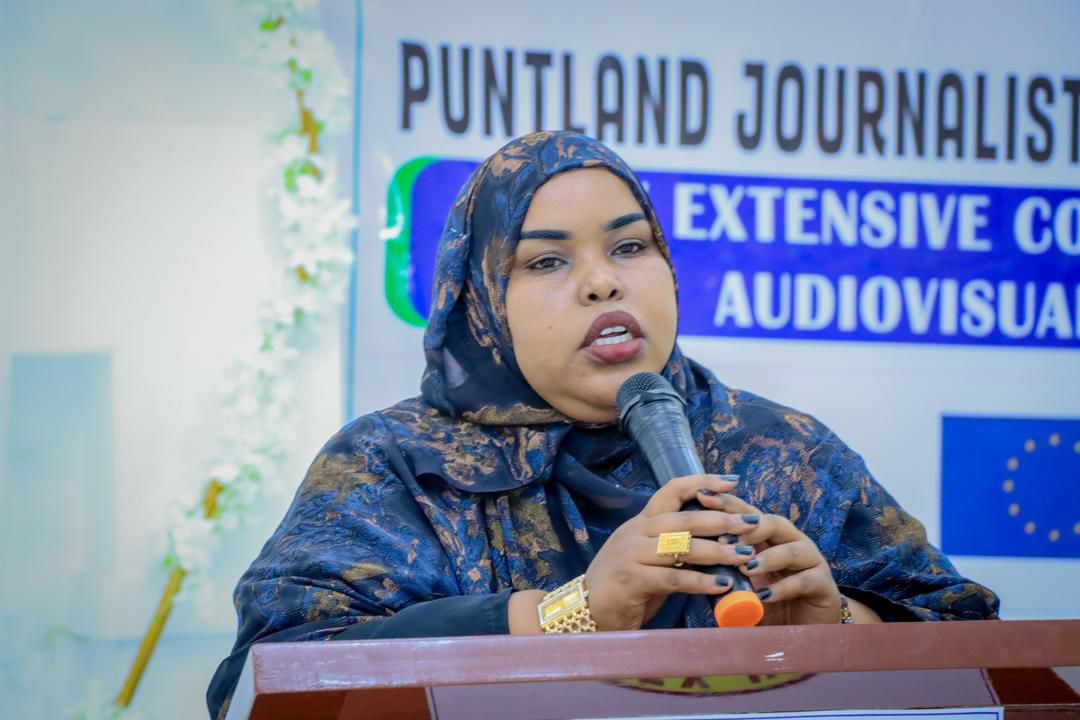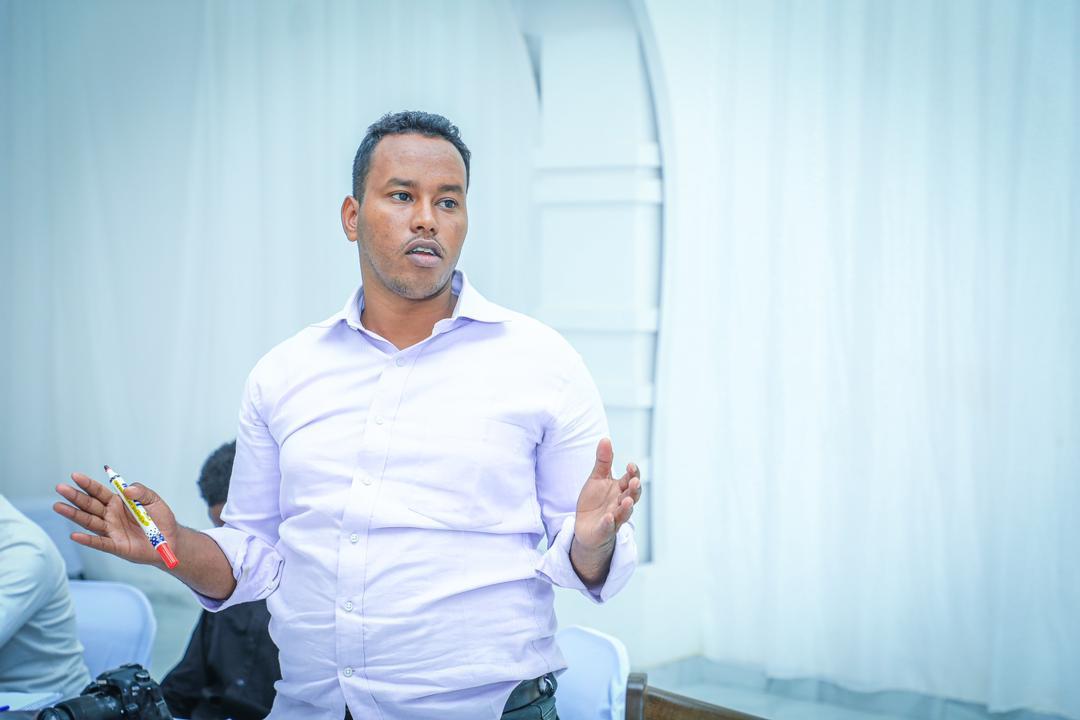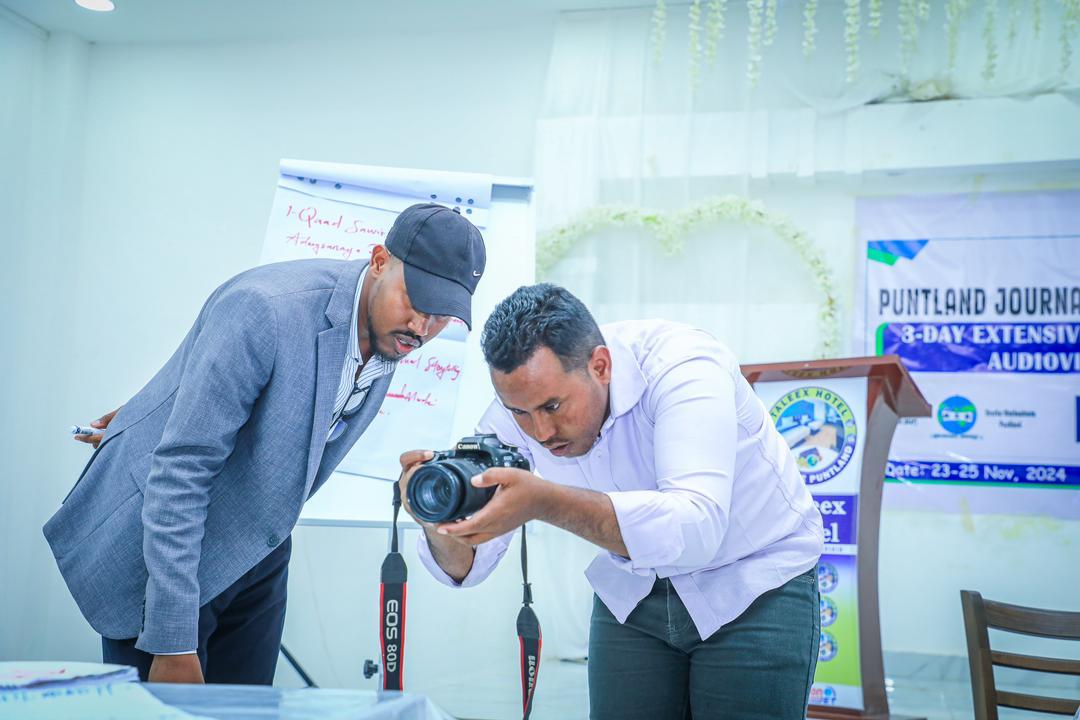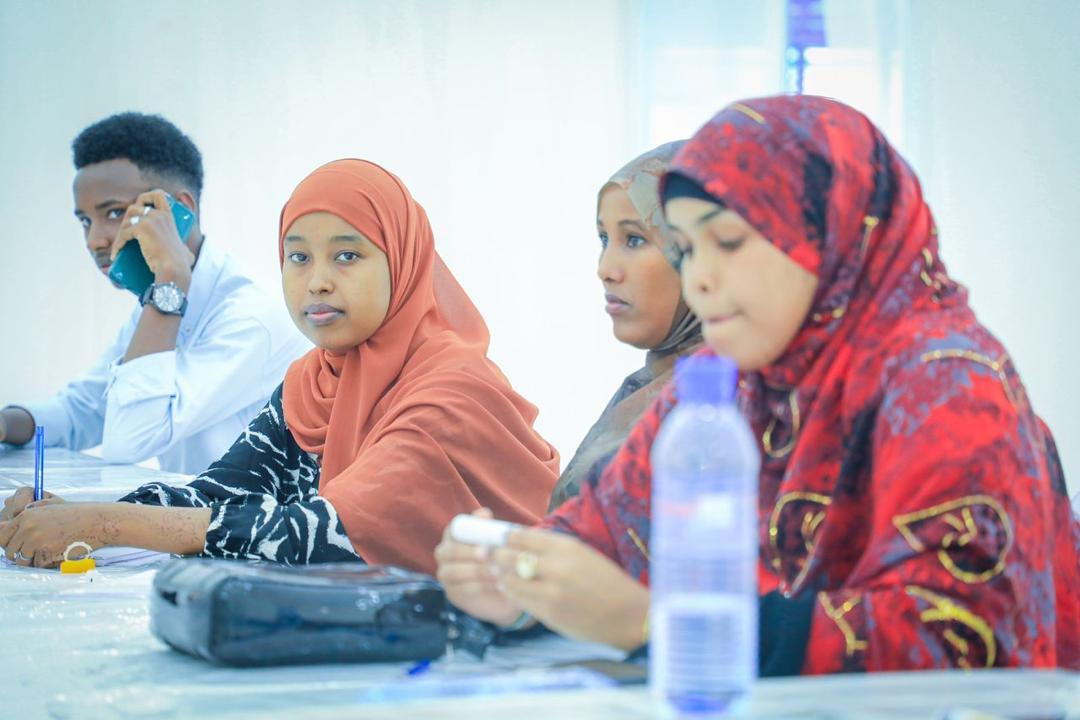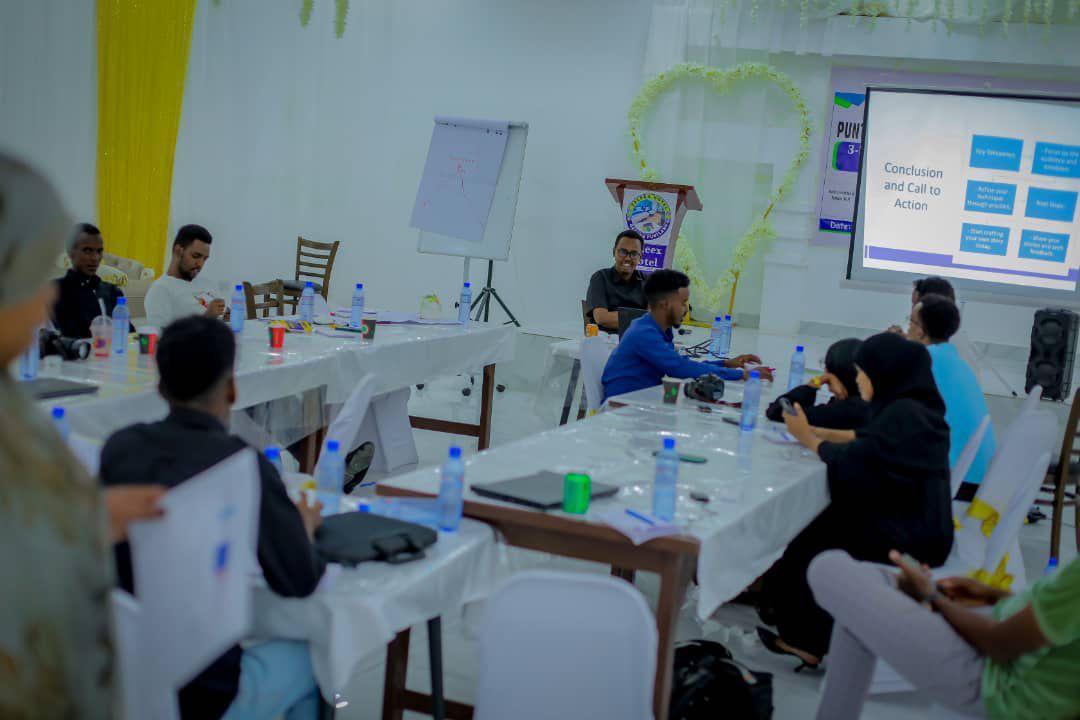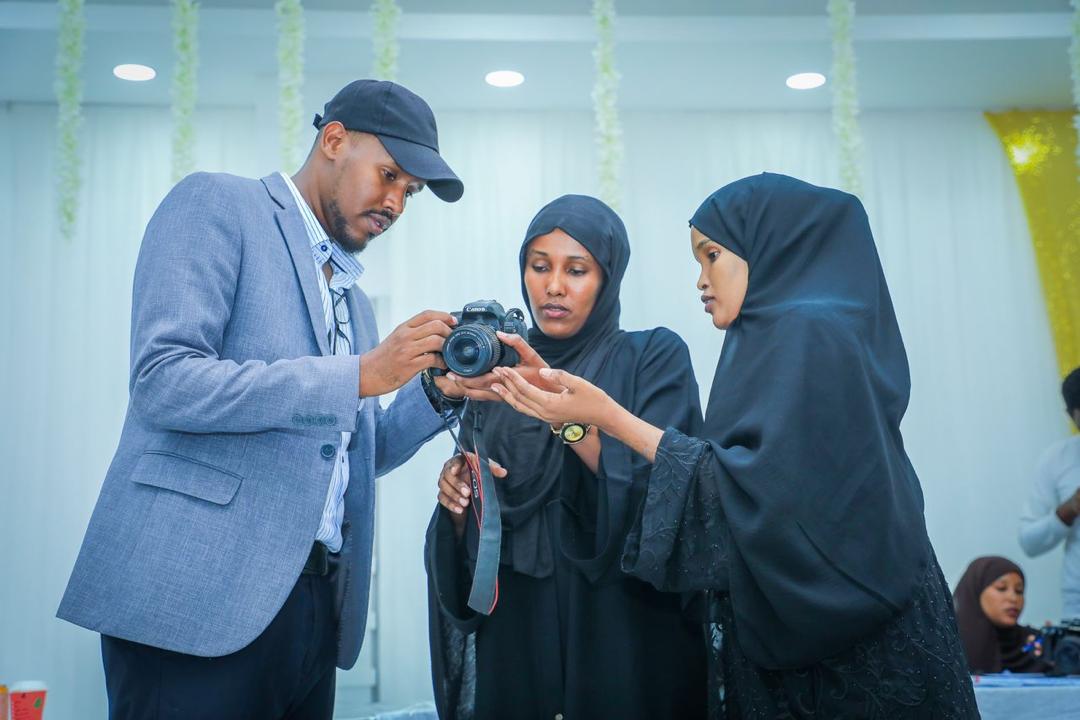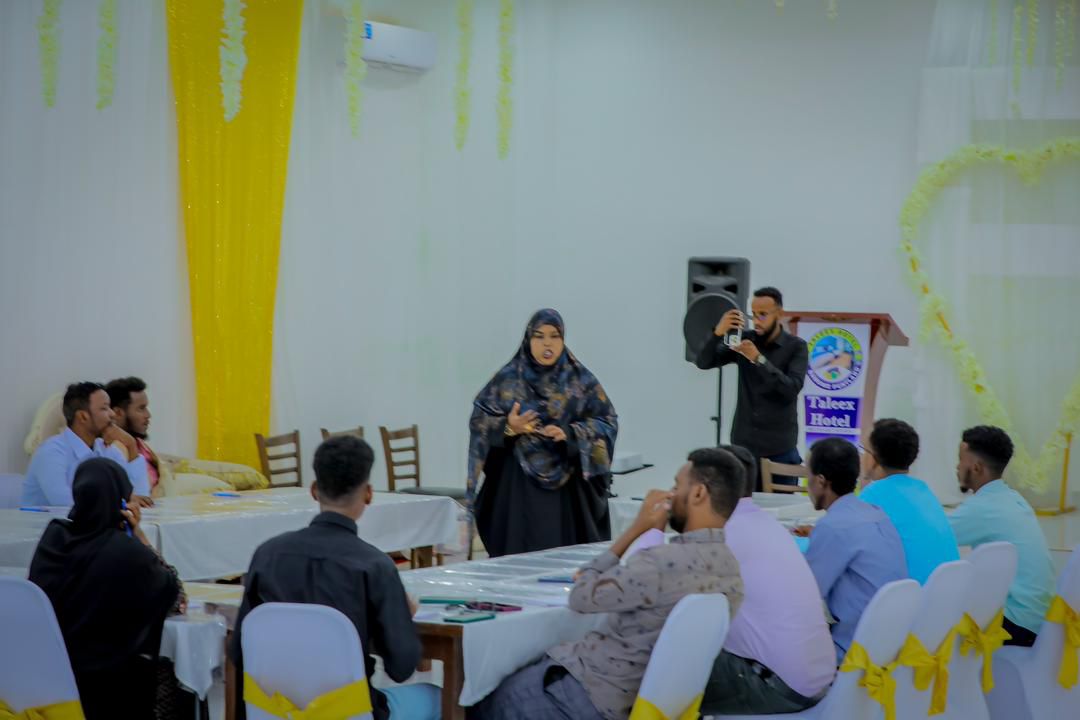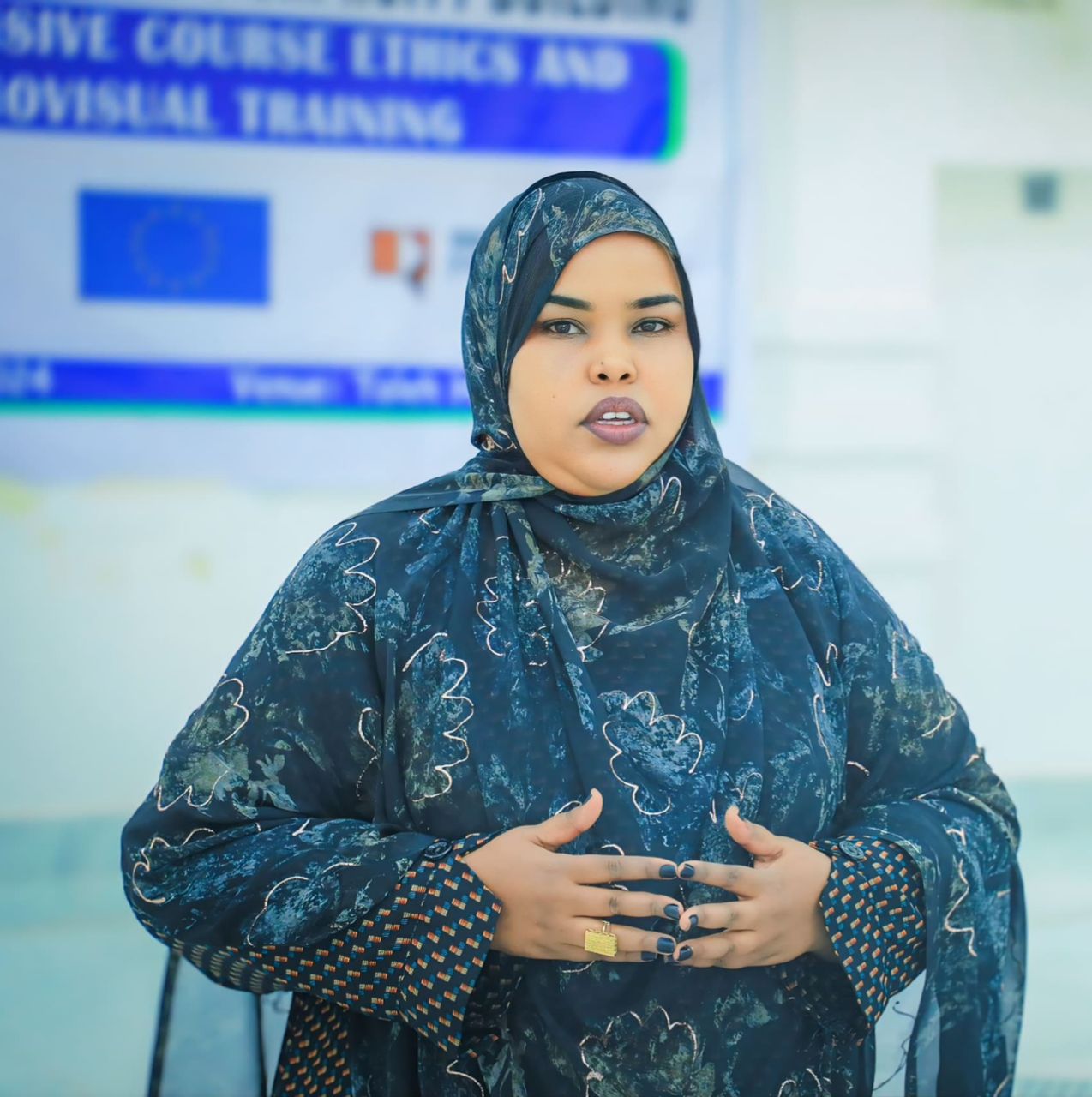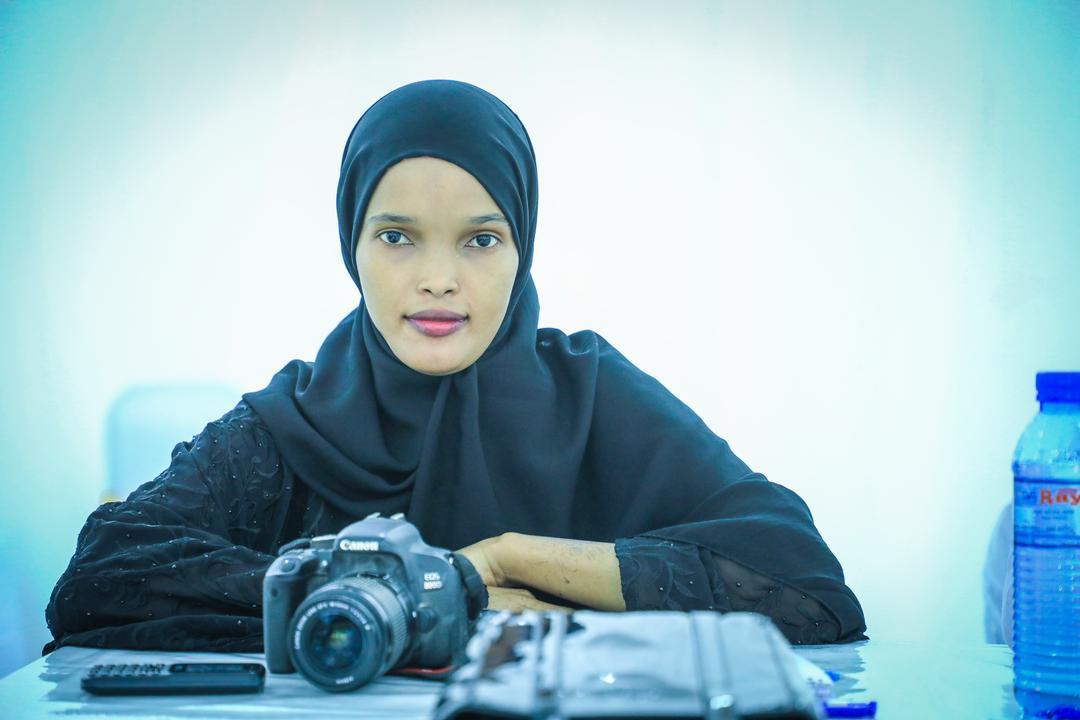Garowe, Puntland, November 25, 2024:The Media Association of Puntland (MAP), in partnership with BBC Media Action and with support from the European Union (EU) under the MAP Culture Project, successfully concluded a three-day workshop on audiovisual content production and ethical journalism.
Held from November 23 to 25 in Garowe, the training aimed to close critical skills gaps, enhance journalistic integrity, and raise professional reporting standards in Puntland.
Fifteen journalists, including five women, participated in the intensive workshop, which forms part of the MAP Culture Project—a wider initiative aimed at fostering an inclusive, resilient, and ethically sound media landscape in Puntland.
The workshop was carefully designed to provide participants with hands-on training, equipping them with the tools to meet the challenges of today’s evolving media landscape. It focused on both technical skills and ethical standards, empowering journalists to produce high-quality content while maintaining professional integrity.
Key areas of focus included:
Audiovisual Storytelling: Participants learned to create compelling, visually engaging narratives for diverse platforms, including traditional broadcast, digital media, and social media.
Camera Operations and Editing: The workshop covered essential video production techniques, such as shot composition, lighting, sound recording, and editing, with a focus on mobile journalism tools for real-time reporting.
Media Ethics: Journalists explored ethical principles like source verification, conflict-sensitive reporting, and balancing public interest with privacy, helping them navigate complex dilemmas responsibly.
The interactive format of the workshop, including group exercises and real-world case studies, allowed participants to immediately apply their new skills. Peer feedback sessions reinforced best practices, enhancing the quality and credibility of their reporting.
Naima Musse, Secretary General of MAP, emphasized the importance of the training during the closing ceremony:
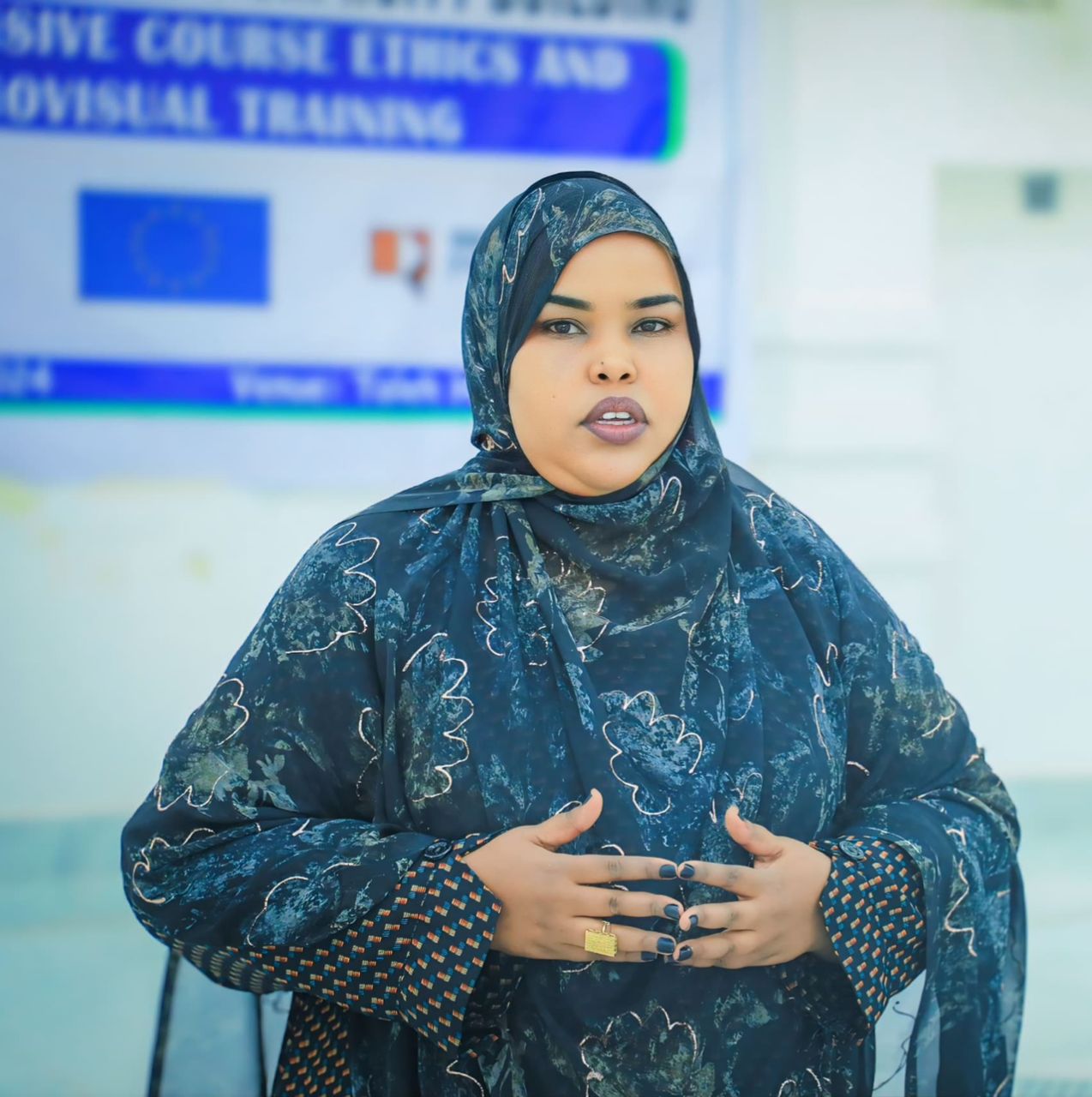
“This workshop goes beyond technical skills; it instills values of professionalism and ethical responsibility. By empowering journalists with these tools, we are strengthening the pillars of accountability and fostering a media environment that serves the public interest with integrity and transparency.”
The workshop received enthusiastic feedback from participants, many of whom reflected on its transformative impact:
“This training has been a turning point for my career. I’ve gained the technical expertise to produce high-quality, impactful stories and the ethical grounding to navigate complex reporting situations with confidence.”
Hodan Abdirizak Ahmed Training Participant, Journalist Radio Daljir
The workshop was shaped by the insights gathered from MAP’s Journalists’ Training Needs Assessment, conducted in October 2024 in collaboration with BBC Media Action. The survey, which engaged 40 journalists across Bosaso, Gardho, Garowe, and Galkaio, provided a detailed understanding of the challenges facing Puntland’s media practitioners.
Key Findings:
Ethical Journalism: Many journalists reported struggling to maintain independence and objectivity, citing socio-political pressures and a lack of formal training in ethical standards.
Audiovisual Production: A staggering 96% of respondents lacked formal training in audiovisual production, limiting their ability to produce professional-quality content.
Conflict-Sensitive Reporting: Journalists expressed a lack of preparedness when covering sensitive issues, particularly in conflict-prone areas, highlighting the need for better training in responsible reporting.
Gender-Sensitive Journalism: Only 25% of respondents had received training in gender-sensitive reporting, revealing a significant gap in the ability to represent marginalized voices and promote inclusivity in the media.
These findings underscored the urgent need for targeted training programs to address these gaps and equip journalists with the skills and knowledge necessary to navigate the complexities of modern media.
Ibrahim Abdirahman, MAP’s Projects Manager, highlighted the assessment’s significance:
“The training needs assessment revealed both the immense potential of Puntland’s journalists and the systemic challenges they face. This training directly responds to these findings, providing journalists with the skills and knowledge they need to excel and contribute meaningfully to their communities.”
This training underscores MAP’s unwavering commitment to empowering journalists and strengthening the media’s role in Puntland’s development. By addressing the gaps identified in the assessment, MAP continues to champion initiatives that promote a free, inclusive, and professional press.
